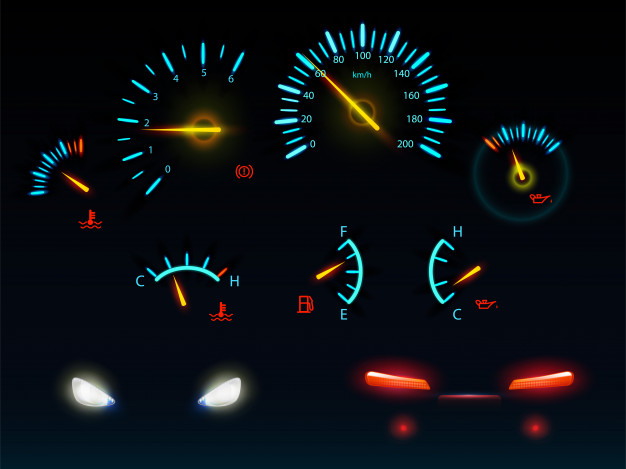At the point when your vehicle’s check engine light enlightens your dashboard, it’s normally joined by a sinking feeling in the pit of your stomach. The light could be a minor issue, for example, a broken gas cap, or it could mean something more serious, for example, a failing motor. As a rule, it implies that you’ll be visiting the vehicle vendor to fix the issue and get the light turned off.
The check engine light — more formally known as the malfunction indicator lamp — is a sign from the’s motor PC that something isn’t right
Check engine lights come in orange, yellow, or amber, depending on the manufacturer. If the light begins flashing, however, it indicates a more serious problem, such as a misfire that can quickly overheat the catalytic converter. These emissions devices operate at high temperatures to cut emissions but can pose a fire hazard if faulty.
The difference between illuminates and remain constantly illuminated light
If the check engine light illuminates, it will either blink or remain constantly illuminated, depending on the problem. A blinking light, or in some cars a red light instead of a yellow or orange light, indicates a problem that needs immediate attention. Either way, you should have the vehicle checked by a mechanic.
In late-model cars, a blinking light usually indicates an engine misfire so severe that unburned fuel is being dumped into the exhaust system, where it can quickly damage the catalytic converter, leading to an expensive repair. If that happens, you should reduce power and have the car or truck looked at as soon as possible.
If the light is steady, the problem is not an emergency, but you should schedule an appointment as soon as possible. Today’s automotive computers often try to compensate when there’s a problem, so you might not notice deterioration in performance, even though your fuel mileage might be suffering and your vehicle emitting unacceptable levels of hydrocarbons and other pollutants.
What to Do About the Check Engine Light
If the check motor light goes ahead, here are a few hints on what you ought to do:
1-Look for a serious problem that requires immediate attention.
Check your dashboard gauges and lights for indications of low oil pressure or overheating. These conditions mean you should pull over and shut off the engine as soon as you can find a safe place to do so. On some cars, a yellow check engine light means to investigate the problem, and a red one means stop right now.
Try tightening your gas cap. This can regularly tackle the problem. Remember that it may take several trips before the light resets. A few vehicles have a different pointer that cautions of a free gas cap.
2-Reduce speed and load.
If the check engine light is blinking or you notice any serious performance problems, such as a loss of power, reduce your speed and try to reduce the demands on the engine. For instance, it would be a smart thought to quit towing a trailer.
Has the vehicle checked as quickly as time permits to forestall costly harm?
3-Use built-in diagnostic services, if available.
Many modern cars have integrated remote diagnostic capabilities, with the ability to report on trouble codes and schedule a service appointment. Today, many automakers—including Fiat Chrysler, Ford, Hyundai, Jaguar/Land Rover, and Volvo—support remote diagnostics and the ability to schedule a service appointment.
4-Utilize worked in symptomatic administrations, if accessible.
Numerous advanced vehicles have coordinated distant indicative capacities, with the capacity to give a difficult situation code and timetable an administration arrangement. Today, numerous automakers—including Fiat Chrysler, Ford, Hyundai, Jaguar/Land Rover, and Volvo—uphold far off diagnostics and the capacity to plan an administration arrangement.
Resources:consumerreports.org
Car problems are many and not always predictable, but Motion Automotive is ready to help you, in case there is any problem with your car, just call us on +1 972-780-8700

